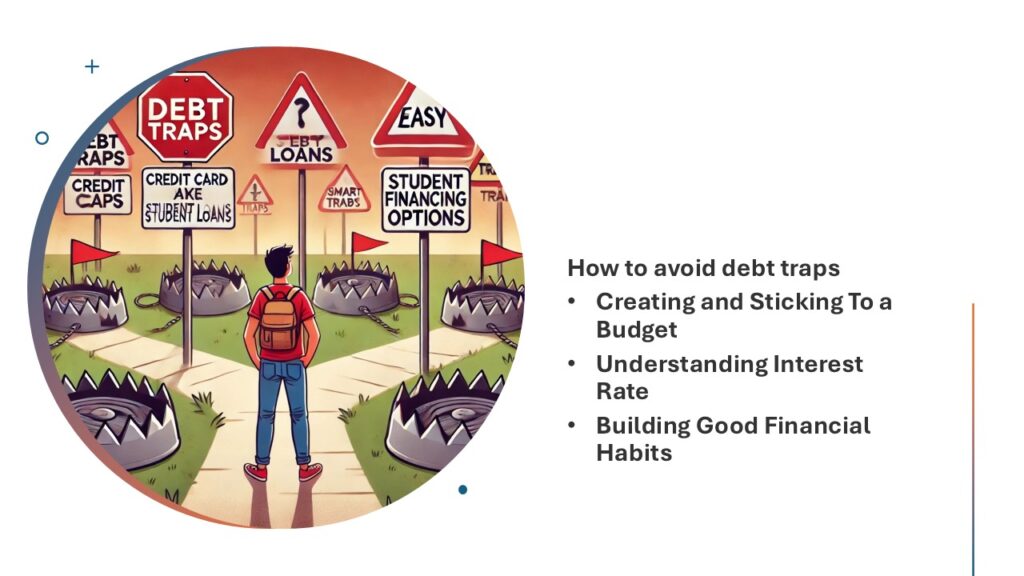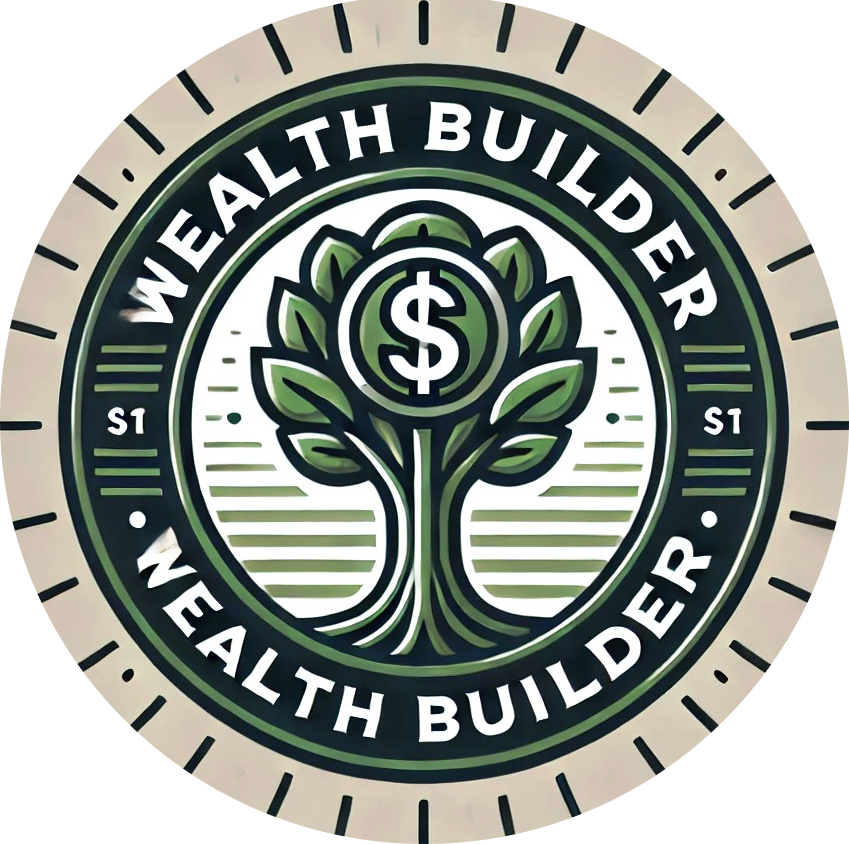Introduction
As a teen, you’re just starting to manage your own money and make financial decisions. While this is an exciting time, it’s also a period when you might encounter several debt traps. These debt traps can lead to serious financial problems if you’re not careful. These traps, like credit cards, student loans, and easy financing options, can initially seem harmless. However, they can quickly spiral into overwhelming debt.
Understanding how to recognize and avoid these debt traps is crucial to keeping your finances healthy and stress-free. In this essay, we’ll explore common debt traps that teens face and provide practical tips on how to steer clear of them. By learning these strategies now, you can protect yourself from the burden of debt and enjoy greater financial freedom in the future.
What is Debt?
Debt is money that you borrow and must pay back. It can come from different sources, like credit cards, student loans, or personal loans. When you use a credit card to buy something, you’re borrowing money from the credit card company. If you don’t pay it back quickly, you’ll have to pay extra money called interest. This is how debt starts to build up. There are different types of debt, and some can be more dangerous than others. For example, credit card debt can grow fast because of high interest rates.
Student loans are another common type of debt, especially as you get older and think about college. Understanding how debt works is important because it shows you how quickly it can become a problem if you’re not careful. Debt isn’t just about borrowing money; it’s also about the responsibility to pay it back on time. If you don’t, debt can follow you for years. It will affect your ability to buy a car, rent an apartment, or even get a job.
The Consequences of Debt Traps
Debt can have serious consequences, especially if it gets out of control. One of the biggest problems with debt is the financial strain it can cause. When you owe money, you have to make regular payments. This can leave you with less money for other important things, like saving for the future or even having fun. This financial stress can make it hard to enjoy life because you’re always worried about making ends meet.
Another major consequence of debt is its impact on your credit score. Your credit score is a number that shows how good you are at paying back the money you owe. If you don’t pay your debts on time, your credit score can drop. A low credit score makes it harder to borrow money in the future, and even if you can borrow, it might come with high interest rates. It can also affect other parts of your life, like getting a job or renting an apartment, because many companies check your credit score before making decisions.
Debt can also have long-term effects. If you carry debt for years, it can delay important milestones in your life. These milestones include buying a car, owning a home, or saving for retirement. The longer you carry debt, the more interest you pay. This means you end up spending much more money in the long run. It can make you feel like you’re always trying to catch up. It can also take years to get out of the hole that debt can create. Understanding these consequences is the first step to avoiding debt. It helps you make smart financial choices that will benefit you for the rest of your life.
Common Debt Traps for Teens
As a teen, it’s easy to fall into debt traps without even realizing it. One of the most common traps is using credit cards. Credit cards can seem like free money, but they come with a big catch: interest. If you don’t pay off your balance every month, the amount you owe can grow quickly due to high interest rates. This can lead to a cycle where you’re always trying to pay off what you owe. However, the debt keeps getting bigger.
Another big debt trap is student loans. In the US, $ 1.75 trillion in student loan debt. While student loans can help you pay for college, they can also leave you with a huge amount of debt after graduation. It’s important to only borrow what you truly need. Think about how you’ll pay it back before taking out loans. Many teens don’t realize how much their monthly payments will be. They also may not understand how long it will take to pay off the loan. This can lead to stress and financial struggles once you start working.
Personal loans and buy now, pay later plans are other traps to watch out for. These might seem like easy ways to get what you want right now, but they can lead to trouble if you don’t have a solid plan for paying them back. Personal loans often come with interest, and missing payments can hurt your credit score. Buy now, pay later plans can also lead to overspending, as it’s easy to lose track of how much you owe. These debt traps can sneak up on you, so it’s important to understand how they work and to be careful about how you use them.
How to Avoid Debt Traps

Avoiding debt is all about making smart financial choices and being aware of your spending habits. One of the best ways to stay out of debt is by creating and sticking to a budget. A budget helps you plan how much money you have coming in and how much you’re spending. By tracking every expense, you can see where your money is going and make sure you’re not spending more than you earn. This is especially important as you start to manage your own money.
Another key to avoiding debt is understanding interest rates. Before you use a credit card or take out a loan, make sure you know how much interest you’ll have to pay if you don’t pay off the balance right away. High interest rates can make debt grow quickly, so it’s important to only borrow what you can afford to pay back on time. If you don’t fully understand how interest works, ask someone you trust or do some research before making a decision.
Building good financial habits is also essential. This means getting into the habit of saving money, avoiding impulse purchases, and paying off any credit card balances in full each month. By saving before you spend, you create a cushion that can help you avoid needing to borrow money in the first place. It’s also important to think twice before making purchases, especially big ones. Ask yourself if you really need the item or if you can wait and save up for it. By making these habits a part of your daily life, you can stay out of debt and keep your finances under control.
What to Do If You’re Already in Debt
If you find yourself already in debt, don’t panic—there are steps you can take to get back on track. Click Here to learn How To Pay Off Debt Faster.
The first thing you need to do is assess the situation. This means figuring out exactly how much you owe, what your interest rates are, and how much you’re paying each month. By understanding your total debt, you can start making a plan to pay it off.
Once you know the details of your debt, the next step is to create a repayment plan. Start by prioritizing the debts with the highest interest rates, as these are the ones that will cost you the most over time. If possible, pay more than the minimum payment each month to reduce the total amount of interest you’ll pay. It might also help to cut back on unnecessary expenses and use that extra money to pay off your debt faster. Even small changes in your spending habits can make a big difference.
If managing your debt feels overwhelming, don’t hesitate to seek help. Talk to a trusted adult, like a parent or teacher, who can give you advice. There are also many online resources and tools that can help you create a debt repayment plan. In some cases, it might be helpful to speak with a financial advisor or credit counselor who can offer professional guidance. The most important thing is to take action as soon as possible. The longer you wait, the harder it can be to get out of debt. By facing your debt head-on and making a plan, you can regain control of your finances and start working towards a debt-free future.
Benefits of Staying Debt-Free
Financial Freedom
Staying debt-free, especially by avoiding common debt traps, offers many valuable benefits that can positively impact your life both now and in the future. One of the biggest advantages is financial freedom. When you avoid falling into debt traps like high-interest credit cards or overwhelming student loans, you have more control over your money. This allows you to make smarter choices about how to spend, save, and invest your earnings. Instead of being tied down by monthly debt payments, you can focus on saving for things that matter to you, like a new phone, a car, or even future education.
Reduce Stress
Another significant benefit of staying debt-free is reduced stress. Debt can be a heavy burden, constantly reminding you that you owe money. By avoiding debt traps in the first place, you prevent that stress from ever becoming a part of your life. Without the worry of debt hanging over your head, you can enjoy other aspects of your life more fully, whether it’s school, hobbies, or spending time with friends and family. The peace of mind that comes with staying debt-free can make it easier to focus on your goals and enjoy the things you love.
Better Opportunities in the Future
Finally, avoiding debt traps sets you up for better opportunities in the future. By maintaining a good credit score, which you achieve by staying out of debt, you’ll have an easier time when you need to borrow money for important things, like buying a home or starting a business. Plus, you’ll often qualify for lower interest rates, which means borrowing money will cost you less. Staying debt-free also allows you to save and invest more, helping you build wealth over time. By avoiding debt traps, you set yourself up for a more secure and successful financial future, free from the constant worry of paying off what you owe.
Conclusion
Avoiding debt traps is crucial for anyone, especially teens who are just beginning to navigate the world of personal finance. Debt can quickly become a burden that limits your financial freedom. It can cause unnecessary stress and restrict your future opportunities. By learning to recognize and avoid common debt traps like credit cards, student loans, and easy financing options, you can protect yourself from the pitfalls of debt. Even if you encounter a potential debt trap, taking action quickly can help. Making smart financial decisions can also help you avoid long-term consequences.
Staying debt-free allows you to enjoy the benefits of financial freedom, reduced stress, and greater opportunities in life. By being aware of the risks and making informed choices now, you can set yourself up for a secure and successful financial future, free from the worry of debt.

